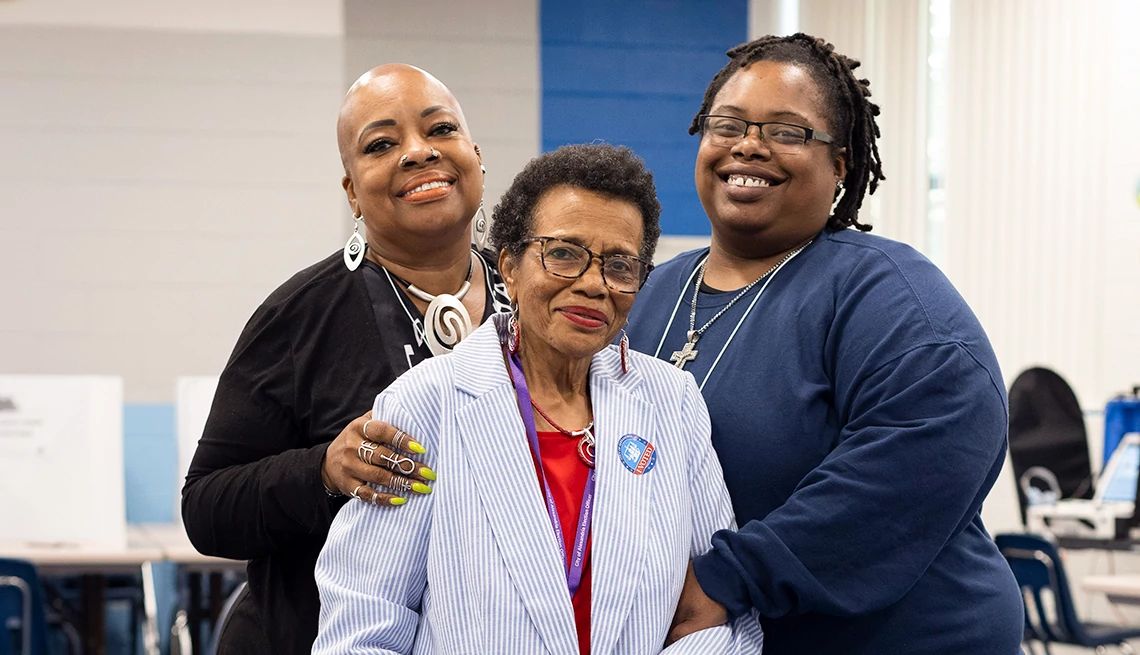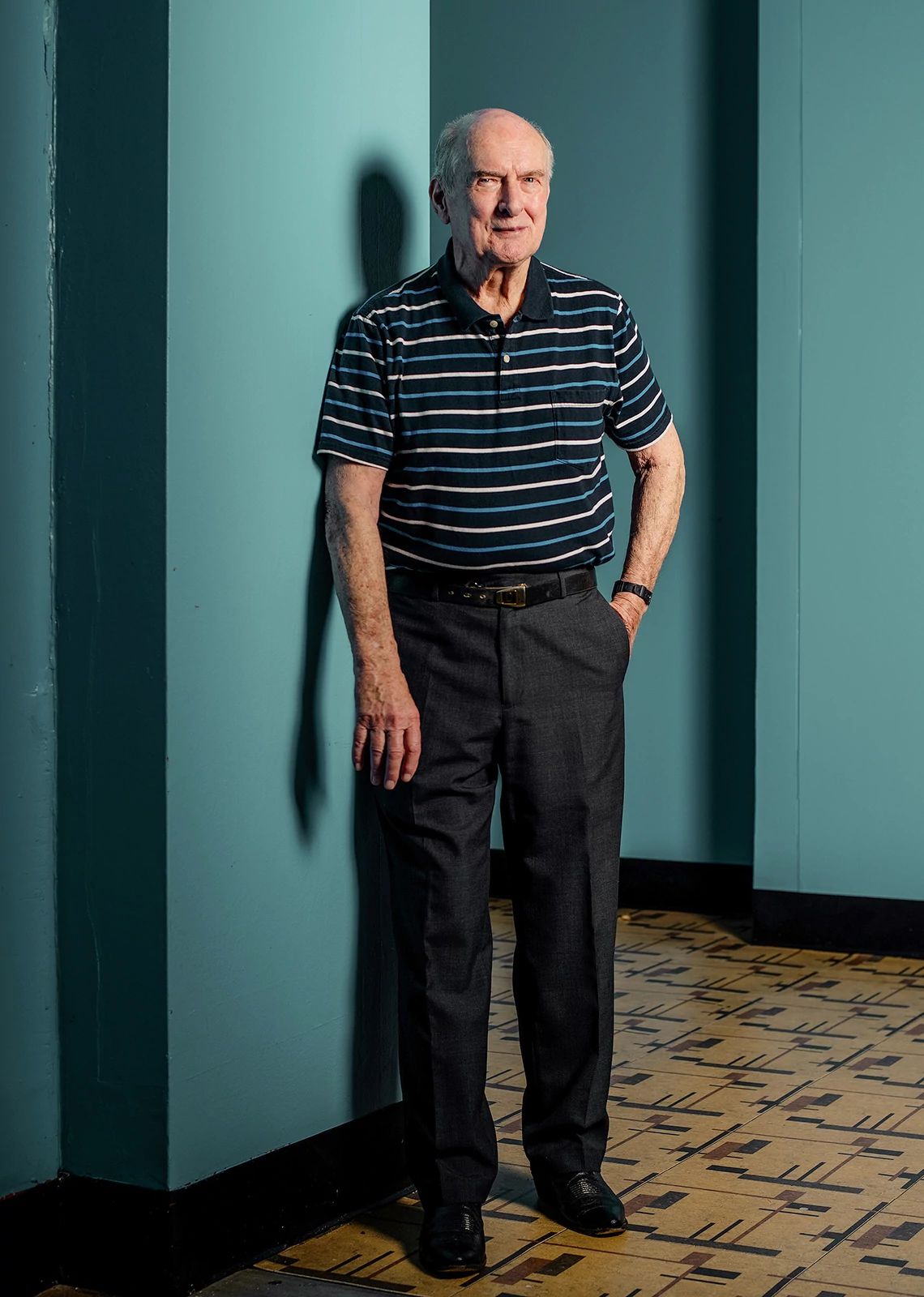AARP Hearing Center


In this story
A critical role • Community connections • Civic duty • Compensation • Pride
Every Election Day, Karen Long wakes up at 5:30 a.m., heads to the kitchen and fills her red-and-white cooler with snacks. Long, 76 and based in Lewiston, Idaho, has been working the polls for 20 years and knows a hefty stack of cookies is key to getting through her day.
Long’s typical shift at the polls on Election Day lasts 13-plus hours, but she looks forward to it, even describing the work as “exhilarating.” Across two decades, Long’s missed only one Lewiston election.
“It’s always exhausting, but it’s rewarding to do something that’s actually important not only to our city and county, but to the nation,” Long says. “It’s a vital part of the democracy.”
Most poll workers are older adults. In the 2022 general election, nearly 6 in 10 U.S. poll workers were ages 61 and older, and more than a quarter were over 70 years old, according to a report from the U.S. Election Assistance Commission (EAC).
How to Become a Poll Worker
- Contact your local elections office for details on how to sign up. You can also use the U.S. Election Assistance Commission Poll Worker Lookup Tool.
- In most states, poll workers must be qualified or registered voters.
- Most states require poll workers to undergo training before working on Election Day.
- Many poll workers work 12-plus hours on Election Day, but some states allow them to work part-time or in a split shift.
- Compensation for poll workers varies widely. Typically, the state sets a minimum wage or daily rate, but local jurisdictions may pay more.
But the job can be demanding. The hours are often long, the pay is generally low, and in recent years, poll workers have faced increased scrutiny and even threats in a politically charged environment.
Despite the drawbacks, plenty of veteran poll workers come back year after year. Laura Wooten, who was a poll worker for 79 consecutive years in New Jersey up until her death in 2019, holds the record. And there are many others who’ve spent decades keeping elections running smoothly. So why do they do it?
Playing a critical role
For the 2024 Presidential Election, about a million poll workers will be needed to staff election sites across the country, according to the EAC. They take on jobs like checking in voters and issuing ballots and are considered essential to administering elections.
“Without this army of part-time folks who come out and do this work,” says Sonni Waknin, program manager of the UCLA Voting Rights Project, a nonpartisan research center, “the ability to run big elections would be a lot harder.”
Polling sites average about eight workers, according to the National Conference of State Legislatures (NCSL), and most are temporary employees hired for early voting and Election Day roles.
But recruitment is a consistent challenge. Between 2018 and 2022, a majority of election officials reported difficulty recruiting enough poll workers for every general election, according to a report from the EAC. Those who return are highly appreciated.


Building community connections
One reason people come back is social – many poll workers say it’s one of the best aspects of the job. As voters stream in to cast their ballots, poll workers often meet new people in their communities or run into that old friend or neighbor they haven’t seen in a while. Those social connections play a big role in happiness as people age.
“It’s really where you see some of your neighbors you only see about once a year,” says David Smith, 83, a poll worker based in Memphis, Tennessee.


































































More From AARP
How to Register and Vote in the 2024 General Election
State-by-state guide to everything you need to know8 Things to Know About Election Disinformation and AI
Artificial intelligence spreads, amplifies falsehoodsAARP Election Polls: How Candidates Are Faring Across the U.S.
Find exclusive data on the 2024 presidential race and issues that matterRecommended for You